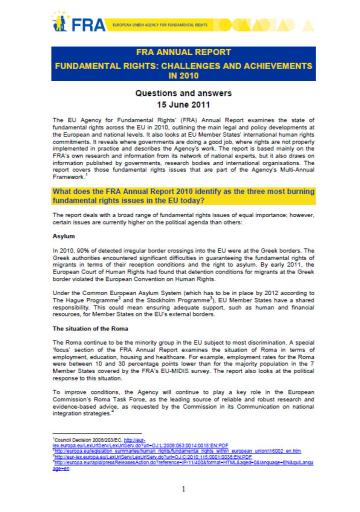Fundamental rights: key legal and policy developments in 2010
Steps forward in 2010 included, among many, the reinforcement of a fundamental rights check of EU legislative proposals and the adoption of the regulation on the Citizens’ Initiative – an important new EU participatory democracy tool. Moves by several Member States to strengthen or create National Human Rights Institutions and the EU’s ratification of the United Nations Convention on the Rights of Persons with Disabilities (CRPD) complemented this picture.
Still, there is no room for complacency. The EU continues to face various issues of concern in the fundamental rights field, such as persistent and extreme poverty as well as social exclusion among Roma communities and deteriorating conditions of asylum seekers in certain Member States. In 2010, the European Court of Human Rights delivered over 600 judgments for violations of human rights, with rulings against almost all 27 EU Member States.
This summary highlights selected key issues in the fundamental rights field, covering the following topics: asylum, immigration and integration; border control and visa policy; information society and data protection; the rights of the child and protection of children; equality and non-discrimination; racism and ethnic discrimination; participation of EU citizens in the Union’s democratic functioning; access to efficient and independent justice; and victims’ protection.
